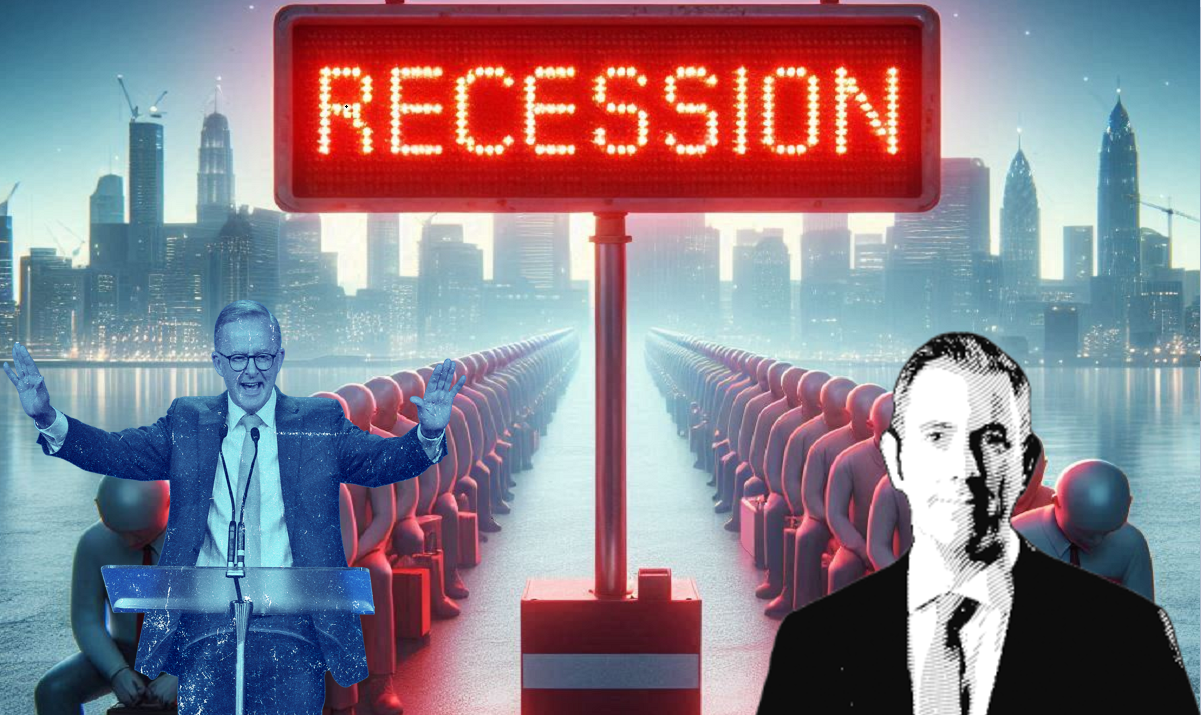They’re huge headline figures — more than $100 billion wiped off the Australian Stock Exchange (ASX) in its worst day since the start of the COVID-19 pandemic, Japan’s Nikkei suffering its biggest single-day loss since 1987, and markets showing red arrows around the world.
, following speculation the United States could be heading for a recession, but were expected to recover slightly on Tuesday.
Japan’s Nikkei appeared to be clawing back its losses on Tuesday, as was the ASX.
US jobs and manufacturing data posted on Friday was much weaker than expected — US employers created 114,000 jobs in July which was way below expectations of 175,000 new roles, while the unemployment rate rose to a near three-year high of 4.3 per cent.
Some analysts say these falls were corrections that had to happen after astronomical highs — several ASX stocks reached new records mid-last week, and the S&P/ASX 200 Index recorded an all-time high.
But how did this happen and what does it mean for consumers?
Will the US have a recession?
The definition of a recession is not clear cut, but the Reserve Bank of Australia says it’s a period of negative or weak growth in economic output, typically highlighted by negative gross domestic product (GDP) figures.
Economists have mixed views on whether this is the trajectory in the US. RSM Australia economist Devika Shivadekar told SBS News the answer is essentially no.
“If you look at indicators such as real final private demand (a measure of private sector spending) in the US, it expanded at a 2.6 per cent rate through the end of June, and 84 per cent of prime-aged workers 25 to 54 were employed, which is a multi-decade high,” she said.
“Both of those figures suggest that, despite current volatility in financial markets, the US economy continues to grow even as overall activity cools along with hiring and inflation.”
Shivadekar also pointed out that the Institute for Supply Management’s services index, which measures economic activity in the services industry, in July showed an increase in overall sentiment and hiring in the service sector. She said this “to a certain extent refutes the idea that the US is about to or already has fallen into recession”.
Tony Sycamore, market analyst at financial markets trading firm IG, said the narrative that the US is heading to recession is “overblown” and that its recent GDP figures reflected a “robust” 2.7 per cent growth.
“We have this conflicting story. We have manufacturing and labour market cooling, which we saw last week, but the services sector is back into expansionary territory and that doesn’t align with the current move around impeding recession,” Sycamore said.
He said markets have tumbled largely as a result of lofty expectations and tech companies not posting the earnings results that were expected of them.
“Everybody was positioned for those tech stocks to continue higher and they pretty much all started falling about two weeks ago,” which had knock-on effects, he said.
But AMP chief economist Shane Oliver said the weakened jobs data figures meant the likelihood of a recession in the US is “fairly high”.
“We’ve had constant chatter about US recession over the last couple of years now, and it hasn’t eventuated,” Oliver said. “That doesn’t mean that it won’t happen though, and the risk remains high and has actually gone up a notch.”
He said some investors feared central banks, including the US Federal Reserve, had over-tightened interest rates and waited too long to start cutting them — a move that could slow further growth.
Could Australia head to a recession?
Sycamore said the impact of falling global markets won’t affect Australian consumers significantly — it’s more confined to just markets.
He cautioned that speculation about recession can lead to recession because people get worried and cut their spending, which can hurt economic growth.
Oliver said he believes “there is a risk here that Australia could go into a full-blown recession”.
“There is a risk here that if the US slides into recession, then that will affect global economic growth, which will then mean less demand for our exports and affect further effect competence. And that could lead to weaker economic growth in Australia,” he said.
He pointed out that consumer confidence is at “recessionary levels” and housing stress is high nationwide.
“My base case is we’ll avoid it, but I’d have to say it’s becoming a pretty close call and nothing goes in a straight line,” he said.
Despite steadily growing GDP, Australia has been in a per-capita recession for over two years, with economic activity per person going backward since March 2022.
Employment figures remain steady — , the June labour force update from the Australian Bureau of Statistics (ABS) showed — up from 4 per cent in May.
The ABS said 50,200 jobs were created, more than double the 20,000 expected by economists, with most of those positions full-time.
How will global market falls affect superannuation funds?
With shares falling, the value of many superannuation funds will have fallen slightly, though this is not an unusual occurrence, Oliver said.
“Super funds typically have about 60 per cent invested in share markets, so that will have an impact on super funds. But this happens every six to 12 months,” he said.
“The reason super funds have a high exposure to shares is because they provide higher returns for investors over long periods. But the price of that is the share markets can be quite volatile.”
Many Australians can’t access their superannuation funds currently; so they can’t do much about the falls, Sycamore said.
What happens in a recession?
Some Australians have never experienced a recession — the last official one having occurred in 1991-1992.
Senior economist at AMP Australia, Diana Mousina, the impacts would be felt gradually and would depend on the length and severity of the economic contraction.
She said economic activity would slow, business profits would contract, and there would be rising unemployment.
The information in this article is general in nature and is not intended as financial advice; you should consult with a licensed professional to make the decisions that are right for you







